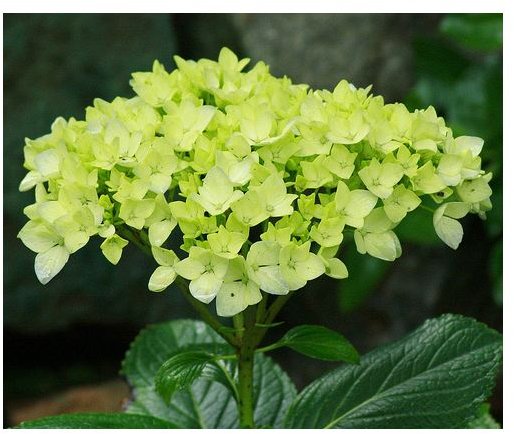Hydrangea Herb Medicinal Benefits
Hydrangea Arborescens
Dried hydrangea roots and rhizomes can be used to treat problems with the urinary system. Rich in glycosides, saponins, and other beneficial phytochemicals, as well as minerals including calcium, magnesium, selenium, and potassium, hydrangea herb is a safe, natural tonic for the kidneys, bladder, and prostate gland. What are the properties of this plant, how can it be safely and effectively used, and what do dried hydrangea roots blend well with for treating the urinary tract?
What can Hydrangea be Used For?
Hydrangea is mainly a diuretic herb. This action is beneficial for encouraging the removal of waste from the body through increasing the release of fluids through the urinary tract. Diuretic herbs are also generally used for water retention. Hydrangea is also an anti-lithic herb, meaning that it helps to prevent the formation of and reduce the presence of stones in the urinary system. These two actions make this plant an ideal medicinal plant for a range of problems that affect the urinary tract.
Hydrangea is an herb that can be used to treat urinary tract infections, as it helps the body rid itself of the infection naturally. It can be combined with dandelion, yarrow, couchgrass, or cornsilk for infections of the bladder or urethra.
For treating kidney stones, which are mineral deposits that can form if your system isn’t properly flushing itself (drinking plenty of water is a great way to prevent kidney stones), hydrangea can be combined with gravel root and corn silk. As an anti-lithic and diuretic herb it will help to dissolve the stones and flush them out of the system.
This healing plant can also be beneficial for prostate problems such as an inflamed prostate gland. Hydrangea root and gravel root together are very helpful for relieving inflammation and discomfort.
How to Use
A great way to enjoy the healing benefits of hydrangea herb is to make an herbal infusion. Take two teaspoons of the dried roots and place in a cup of water. Bring to a boil and simmer for ten minutes. Strain the herb and then drink. When treating the urinary system drink up to three cups daily. Another effective method is to take an herbal tincture. Use a dropperful of the hydrangea tincture in a cup of juice or water one to two times daily.
While this plant is safe for general use you should not take in excess or use continuously. If you are pregnant, breastfeeding, or on any type of prescription medication, talk to your doctor before using herbal medicine. While the roots are beneficial, do not consume the leaves or flowers of this plant. Hydrangea leaves can be toxic.
References
Hoffmann, David. “The Complete Illustrated Holistic Herbal: A Safe and Practical Guide to Making and Using Herbal Remedies.” (Element Books, 1996).
Balch, Phyllis A. “Prescription for Nutritional Healing.” Fourth Edition (Penguin Books, 2006).
image by Swaminathan (CC/flickr) https://www.flickr.com/photos/araswami/2368618124/
Disclaimer
Please read this disclaimer regarding the information contained within this article.
